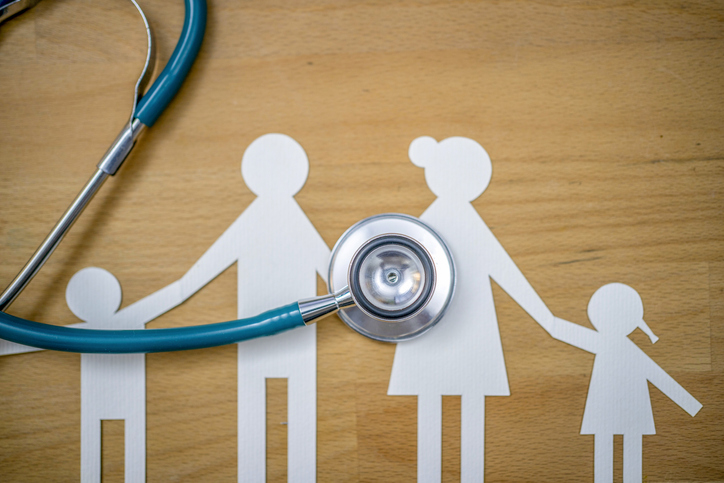
The emergence of biosimilars has revolutionized the pharmaceutical industry, offering cost-effective alternatives to complex biological drugs. However, healthcare professionals often face an educational gap when it comes to understanding and utilizing these biosimilar therapies. This is where the vital role of Medical Affairs teams in the pharmaceutical industry comes into play.
Biosimilars are highly similar, yet not identical copies of an approved reference biological product. They offer comparable efficacy, safety, and quality but come at a significantly reduced cost, making them a promising alternative in patient care. However, due to their nuanced nature, healthcare professionals require specialized knowledge to confidently prescribe, administer, and monitor biosimilar therapies.

With the Rise of AI, What IP Disputes in Healthcare Are Likely to Emerge?
Munck Wilson Mandala Partner Greg Howison shared his perspective on some of the legal ramifications around AI, IP, connected devices and the data they generate, in response to emailed questions.
The Medical Affairs function
Medical Affairs departments within pharmaceutical companies are responsible for bridging the gap between scientific research and healthcare practice. Their role encompasses a range of activities, including providing medical education, fostering relationships with healthcare professionals, and offering evidence-based guidance on the use of medicines. Medical Affairs teams act as a crucial link between the pharmaceutical industry, healthcare providers, and patients.
Bridging the educational gap
Medical Affairs teams play a pivotal role in bridging the educational gap by providing comprehensive and up-to-date information about biosimilars to healthcare professionals. This is done primarily through Medical Science Liaisons or MSLs. They deliver educational information and resources tailored to different healthcare specialties, ensuring that physicians, pharmacists, nurses, and other healthcare providers are equipped with the necessary knowledge to make informed clinical decisions. In the last decade, MSLs and field-based Medical Affairs professionals have received more visibility because of the significance they have in educating healthcare professionals on disease states and the latest cutting-edge therapies.
Medical Affairs teams also collaborate with professional medical societies and associations to develop clinical guidelines and consensus statements regarding the use of biosimilars. By engaging in scientific exchanges and expert consultations, they contribute to the development of evidence-based clinical practices and address any concerns or misconceptions related to biosimilars.
Further, Medical Affairs specialists provide ongoing support to healthcare professionals by addressing inquiries, offering real-world data, and assisting with the integration of biosimilars into clinical practice. They play a critical role in organizing educational events, such as speaker programs and scientific conferences, where healthcare professionals can engage with experts and exchange experiences.
There is a significant educational opportunity in the biosimilars field as it is a rapidly emerging area where not only a deep clinical understanding is key, but also a sound regulatory framework. For example, several studies point to the confusion around concepts such as interchangeability designations among Biosimilars.
To accomplish effective broad skill sets for Medical Affairs and MSL professionals in this area will most certainly mean that Medical Affairs and MSL professionals are adequately trained and certified in the areas of biologics, biosimilars, and perhaps Medical Affairs so that they have a uniform understanding of how to both deliver important clinical information as well as interpret data appropriately.
Conclusion
Biosimilars represent an important therapeutic option in modern healthcare, offering cost-effective alternatives to complex biological drugs. The educational gap among healthcare professionals poses a challenge to their widespread adoption. Medical Affairs teams in the pharmaceutical industry are at the forefront of bridging this gap, providing education, evidence-based guidance, and ongoing support, thus ensuring optimal patient care and utilization of biosimilar therapies.
Photo: krisanapong detraphiphat, Getty Images
Dr. William Soliman is the Founder and CEO of the Accreditation Council for Medical Affairs (ACMA). He is a pharma industry futurist with over 15 years of experience in the industry working with several companies such as Merck, Abbvie, Gilead Sciences, and Eisai among others. He is passionate about transforming the industry through benchmarking and technology.
Dr. Soliman was invited in March 2021 before the United States Congress, Health Subcommittee with Republican Congressman Brett Guthrie to discuss healthcare, the pharmaceutical industry, and the importance of professional standards for those professionals who engage healthcare providers. Additionally, Dr. Soliman was invited in June 2021 as a speaker at the U.S. Attorney General Alliance Meeting.
Dr. Soliman received his Ph.D. from Columbia University & his Bachelors from New York University.














